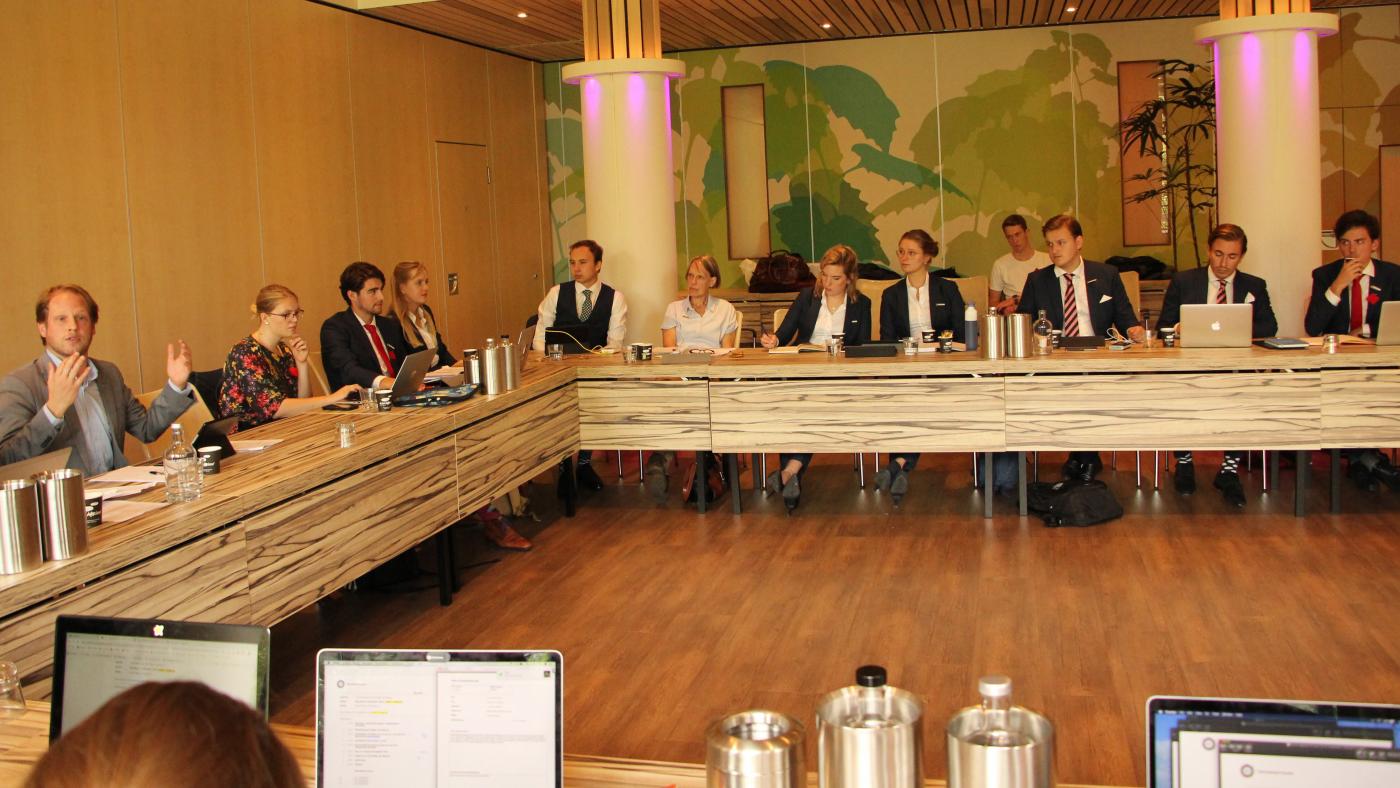University council wants English documents and interpreter for international council members

For years now, co-determination groups at the university have been struggling with the question of how to involve the growing group of international students and employees in the university’s democracy. The university wants to be inclusive, but actual full-fledged participation is tricky for council members who don’t speak Dutch fluently.
The current parties, with the exception of De Vrije Student, are now presenting a plan to the university board in which they explain how to give internationalisation shape in the co-determination groups. With the plan, the parties are building on a document previous council president Fred Toppen had created just before summer.
“At the time, the Executive Board had indicated that we were to present concrete proposals. That’s what we’ve done now,” student-member Vincent de Haes of the Vuur party explains. The ideas aren’t just meant for the university council, but also as a helping hand to the faculty boards.
Documents in two languages, and live translation of meetings
Co-determination will not turn into a complete English affair, the plan says. “After all, Utrecht University is a Dutch institution.” For that reason, bilingualism is at the heart of the proposal. In meetings, Dutch council members can speak Dutch, and international members can speak English. All participants can call for the services of a translator. This can be a speech-to-text reporter, or, if there’s sufficient budget, through an interpreter who simultaneously translates the conversations. The international council members who don’t speak Dutch are, however, expected to take a Dutch course, which is offered by the university for free.
Compensation
The second recommendation is to make all policy documents available in two languages. Well before the meeting, it will then be decided whether there are documents of which an English summary would suffice. All letters and papers to the board always have to submitted in both Dutch and English.
International council members also have to be able to consult the archives. The proposal states that, with a short motivation, they can request translations of archived documents. That translation will then have to be made available within a week.
International students who are on a co-determination body have to be compensated adequately, especially if they’re paying the high institutional tuition fee. The council members propose a solution in which the internationals would pay the regular, much lower tuition fee instead. Aside from that, they’ll be compensated for their council work in the same way as Dutch students.
The council members realise their proposals don’t come cheap. They’re asking the Executive Board to present a budget soon, so they’ll be able to assess whether the plans are financially doable in early 2020.
Passive Dutch
The Vrije Student party hasn’t signed this proposal. The reason for this is that the party thinks every international student and employee should learn passive Dutch, so you’ll at least be able to understand the language. Furthermore, co-determination meetings should be held in Dutch, they say. They also feel that a number of these proposals would be very expensive: the costs of translations and the proposed compensation provision for international students, for instance, would pile up quickly. That money, the party claims, would be better spent on education.